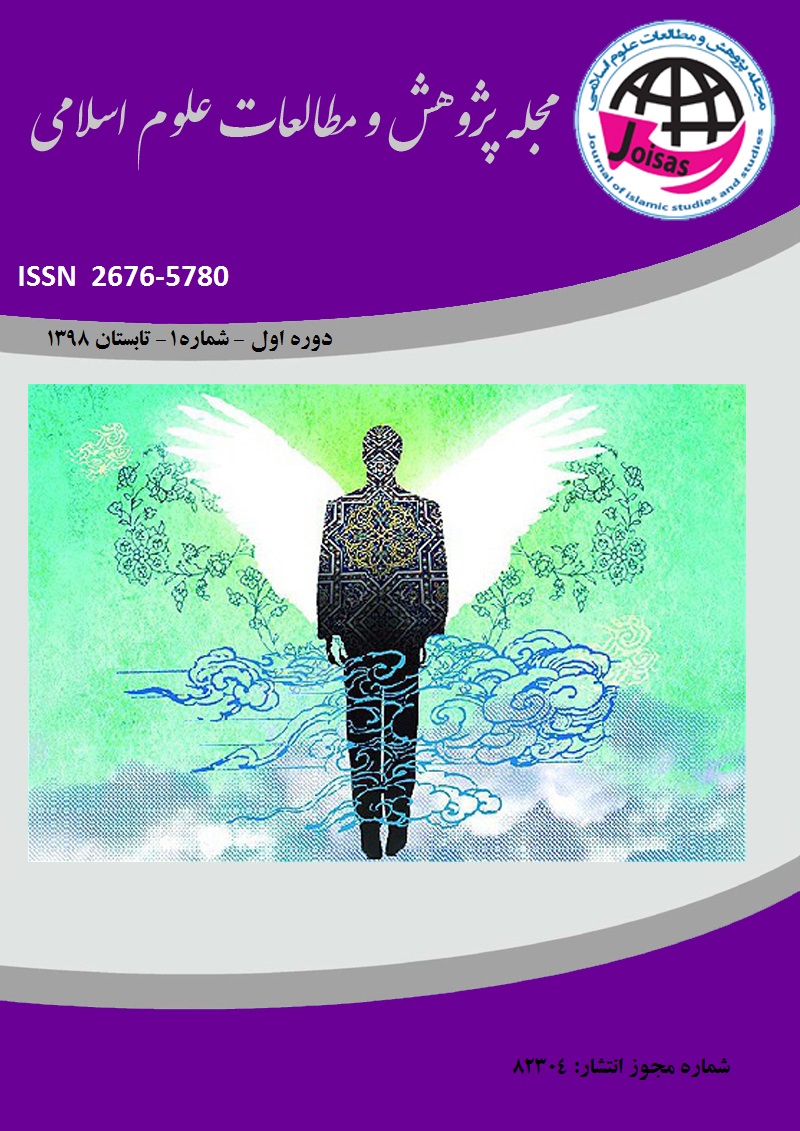Structural Model The role of mind-awareness in the relationship between self-regulation learning and goal orientation with successful academic identity
Volume 1, Issue 2, 2019, Page 54 - 68
Authors : Farzane Yousefi , Zahra Zeinaddiny Meymand
Abstract :
Background and Aim: The purpose of this study was to investigate the role of mediating mindfulness in the relationship between self-regulation learning and goal orientation with successful academic identity. Method: The research design was descriptive-correlational and its statistical population included all high school students in Nehbandan city in the academic year of 2016-2017. 216 of them were selected through multistage cluster sampling. Contributors to the Educational Identity Questionnaire (Wass & Isaacson, 2008); Objective Orientation (Midgley et al., 1998) completed self-regulatory learning strategies (Pentrich & De Groot, 1990) and mindfulness (Baer et al., 2010). Survey research hypotheses using Pearson correlation and regression analysis and structural equation modeling software in the form of a causal model using spss and took Lisrel. Results: The results of this study showed that according to the presented indicators, the model is suitable for fitting and our relationship with self-regulation learning and goal orientation with successful academic identity is a kind of incremental mindfulness mediation so that the coefficient The direction of goal orientation and mindfulness, self-regulation learning and mindfulness, mindfulness and successful academic identity are respectively (0.13), (0.54), and (0.39). Conclusion: Efforts to use meta-cognitive strategies and the adoption of the orientation of the dominant-orientation goal together with effective mindfulness lead to the formation of a successful academic identity in students. Therefore, it is necessary to apply the meta-cognitive strategies, planning, review and Mental adjustment is included in the curriculum.
Background and Aim: The purpose of this study was to investigate the role of mediating mindfulness in the relationship between self-regulation learning and goal orientation with successful academic identity. Method: The research design was descriptive-correlational and its statistical population included all high school students in Nehbandan city in the academic year of 2016-2017. 216 of them were selected through multistage cluster sampling. Contributors to the Educational Identity Questionnaire (Wass & Isaacson, 2008); Objective Orientation (Midgley et al., 1998) completed self-regulatory learning strategies (Pentrich & De Groot, 1990) and mindfulness (Baer et al., 2010). Survey research hypotheses using Pearson correlation and regression analysis and structural equation modeling software in the form of a causal model using spss and took Lisrel. Results: The results of this study showed that according to the presented indicators, the model is suitable for fitting and our relationship with self-regulation learning and goal orientation with successful academic identity is a kind of incremental mindfulness mediation so that the coefficient The direction of goal orientation and mindfulness, self-regulation learning and mindfulness, mindfulness and successful academic identity are respectively (0.13), (0.54), and (0.39). Conclusion: Efforts to use meta-cognitive strategies and the adoption of the orientation of the dominant-orientation goal together with effective mindfulness lead to the formation of a successful academic identity in students. Therefore, it is necessary to apply the meta-cognitive strategies, planning, review and Mental adjustment is included in the curriculum.
Keywords :
\\\"successful academic identity\\\", \\\"self-regulation learning\\\", \\\"goal orientation\\\", \\\"Mindfulness\\\".
\\\"successful academic identity\\\", \\\"self-regulation learning\\\", \\\"goal orientation\\\", \\\"Mindfulness\\\".
Article View
1,416
PDF Download
28

